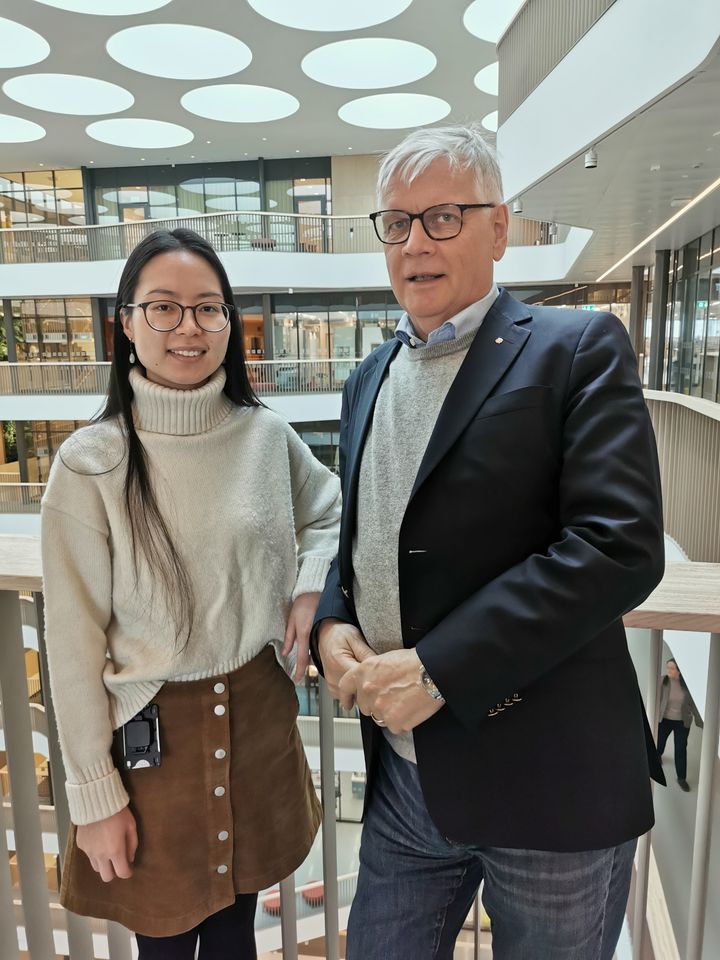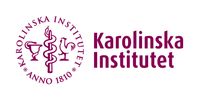New drug candidate reverses obesity in mice
Researchers at Karolinska Institutet may have found a new way to treat obesity and related disorders by targeting the cells’ powerhouses, the mitochondria. A study published in Nature Metabolism shows that a specific class of drugs that block mitochondrial function can reverse diet-induced obesity, fatty liver and diabetes in mice.

Mitochondria are essential for human health, as they process the nutrients in the food we eat and harvest the energy needed for various processes in the cell. They are central regulators of metabolism, which is very dynamic and can be rerouted and reprogrammed according to different needs or in response to disease.
Increased fat metabolism
Professor Nils-Göran Larsson’s research group at Karolinska Institutet has recently developed highly specific drug candidates that block mitochondrial function, and thus cellular energy production, to treat cancer. Now the researchers have shown that these drugs also have a beneficial effect on metabolism in mice.
“Four weeks of treatment led to an unexpected increase in fat metabolism, resulting in a drastic weight loss, a reduction in fat accumulation in the liver and restored glucose tolerance,” says postdoctoral researcher Taolin Yuan at the Department of Medical Biochemistry and Biophysics, Karolinska Institutet.
The treatment was given orally to male obese mice who had been fed a high-fat diet. The surprising effect suggests that blocking the cells’ energy production can reverse obesity and diabetes.
Collaboration with a biotech company
“It’s exciting that we have identified a new potential strategy for treating common diseases like obesity and type 2 diabetes,” says Professor Nils-Göran Larsson. “We now aim to further investigate the mechanisms that can explain the drugs’ effect. We have also initiated a collaboration with a biotech company to see if this can be further developed into a treatment for humans. Still, it will be many years before we know if it works,” he concludes.
The study was financed by the Novo Nordisk Foundation, the Swedish Diabetes Foundation, the Swedish Research Council, the Knut and Alice Wallenberg Foundation, ALF funding, the Swedish Cancer Society and the Swedish Brain Foundation. Nils-Göran Larsson is a scientific founder and holds stock in Pretzel Therapeutics Inc. Three of the coauthors are employees of Lead Discovery Center and are listed as co-inventors on a patent application concerning mitochondrial RNA polymerase inhibitors for the treatment of cancer. The remaining authors declare no competing interests.Publication: “Inhibition of mammalian mtDNA transcription acts paradoxically to reverse diet-induced hepatosteatosis and obesity”, Shan Jiang, Taolin Yuan, Florian A. Rosenberger, Arnaud Mourier, Nathalia R. V. Dragano, Laura S. Kremer, Diana Rubalcava-Gracia, Fynn M. Hansen, Melissa Borg, Mara Mennuni, Roberta Filograna, David Alsina, Jelena Misic, Camilla Koolmeister, Polyxeni Papadea, Martin Hrabe de Angelis, Lipeng Ren, Olov Andersson, Anke Unger, Tim Bergbrede, Raffaella Di Lucrezia, Rolf Wibom, Juleen R. Zierath, Anna Krook, Patrick Giavalisco, Matthias Mann & Nils-Göran Larsson, Nature Metabolism, online 30 April 2024, doi: 10.1038/s42255-024-01038-3.
Contacts
For more information, please contact:
Nils-Göran Larsson, professor
Department of Medical Biochemistry and Biophysics, Karolinska Institutet, Sweden
Phone: +46 70 209 71 55
Email: nils-goran.larsson@ki.se
More press photos of Nils-Göran Larsson and Taolin Yuan can be downloaded from KI's mediabank (https://mediabank.ki.se/)
Images

Karolinska Institutet (https://ki.se/en) is one of the world’s leading medical universities. Our vision is to advance knowledge about life and strive towards better health for all. Karolinska Institutet accounts for the single largest share of all academic medical research conducted in Sweden and offers the country’s broadest range of education in medicine and health sciences. The Nobel Assembly at Karolinska Institutet selects the Nobel laureates in Physiology or Medicine.
Subscribe to releases from Karolinska Institutet - English
Subscribe to all the latest releases from Karolinska Institutet - English by registering your e-mail address below. You can unsubscribe at any time.
Latest releases from Karolinska Institutet - English
New method reveals how the brain and inner ear are formed3.4.2025 20:00:00 CEST | Pressmeddelande
Researchers at Karolinska Institutet have developed a method that shows how the nervous system and sensory organs are formed in an embryo. By labelling stem cells with a genetic ‘barcode’, they have been able to follow the cells’ developmental journey and discover how the inner ear is formed in mice. The discovery, published in Science, could provide important insights for future treatment of hearing loss.
Fluoride in drinking water is associated with impaired childhood cognition7.3.2025 15:30:00 CET | Pressmeddelande
Elevated concentrations of fluoride can occur in well water, and in some countries, it is added to drinking water to counteract caries in the population. A study from Karolinska Institutet in Sweden now supports a few previous studies indicating that exposure to fluoride during the fetal stage or early childhood may impair cognition in children. The study is published in the journal Environmental Health Perspectives.
Children with ARFID face increased risk of disease17.2.2025 17:00:00 CET | Pressmeddelande
Children with avoidant restrictive food intake disorder (ARFID) have an elevated risk of developing psychiatric and physical conditions, a new study from Karolinska Institutet published in JAMA Pediatrics reports. The study highlights the importance of early identification to improve care of these children.
Preterm babies receive insufficient pain management27.1.2025 15:29:17 CET | Pressmeddelande
A large proportion of babies born very early need intensive care, which can be painful. But the healthcare system fails to provide pain relief to the full extent. This is shown by the largest survey to date of pain in neonatal care, now published in the journal Pain.
New study paves way for immunotherapies tailored for childhood cancers20.1.2025 17:00:00 CET | Pressmeddelande
Researchers at Karolinska Institutet and the Astrid Lindgren Children’s Hospital in Sweden have determined how children’s immune systems react to different kinds of cancer depending on their age. The study, which is published in the journal Cell, reveals significant differences between the immune response of children and adults, and has the potential to lead to new tailored treatments for children with cancer.
In our pressroom you can read all our latest releases, find our press contacts, images, documents and other relevant information about us.
Visit our pressroom